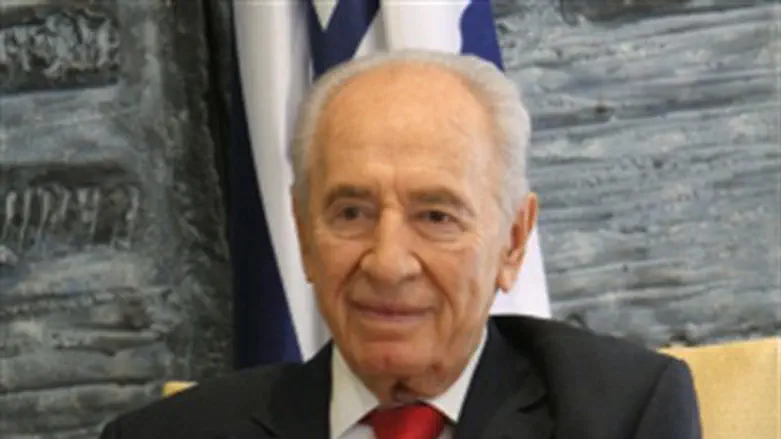
“I can hardly stand to see babies being killed by tanks of their own government, but we cannot intervene,” President Shimon Peres told CNN Monday. "The bloodshed which I regret so much in Syria has nothing to do with Israel, nothing whatsoever," Peres said in an interview.
More than 35,000 people are estimated to have been killed in the fighting that began in March 2011, and more than 400,000 people have been displaced, according to figures supplied by human rights officials, opposition leaders and the United Nations.
CNN interviewed Peres after Israel responded to another mortar shell explosion in the northern Golan Heights by shooting into Syrian territory for the first time since the Yom Kippur War in 1973.
Like other foreign media, the news network referred to the Golan Heights as being “occupied” even though Israel annexed it more than 30 years ago.
"We never took an initiative to fire," Peres said. "And we don't take any advantage of the civil war in Syria. We don't consider that we should or can intervene.
“If they want to have an additional war ... well, that's their choice… But if it ever happens, we shall defend ourselves -- that's what I can say. I don't want to exaggerate and to make great declarations and bellicose interests.”
This week’s mortar shell firings on the Golan Heights, like previous shooting from the Syrian side, is not considered by Israeli officials to be intentional. However, the IDF fired warning shots in return to make it clear that Israel cannot tolerate any firing on its northern residents, regardless of the intention.
Israel has filed another official complaint to the United Nations, and this time Secretary-General Ban Ki-Moon reacted with a statement that he "is deeply concerned by the potential for escalation” and called for restraint on the part of Israel as well Syria.
Israel's ambassador to the United States, Michael Oren, told CNN Sunday that there is more of a probability of a flood of refugees into Israel rather than an exchange of fire.
"We'd give them refuge," Oren said. "These are populations with which we have good relations. It's not unprecedented. We've been prepared for it for a long time but it hasn't happened."
